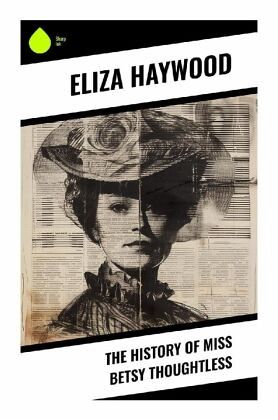
The History of Miss Betsy Thoughtless
Versandkostenfrei!
Versandfertig in 6-10 Tagen
19,00 €
inkl. MwSt.
Weitere Ausgaben:

PAYBACK Punkte
0 °P sammeln!
Eliza Haywood's "The History of Miss Betsy Thoughtless" presents a captivating exploration of early 18th-century society, focusing on the trials and tribulations of its spirited protagonist, Betsy. The novel's narrative is laced with delightful wit and keen social commentary, employing a third-person perspective that allows for intricate character development and moral exploration. Haywood deftly intertwines themes of morality, gender, and societal expectations, illustrating the tension between individual desire and societal norms during the Restoration period, creating a rich tapestry of huma...
Eliza Haywood's "The History of Miss Betsy Thoughtless" presents a captivating exploration of early 18th-century society, focusing on the trials and tribulations of its spirited protagonist, Betsy. The novel's narrative is laced with delightful wit and keen social commentary, employing a third-person perspective that allows for intricate character development and moral exploration. Haywood deftly intertwines themes of morality, gender, and societal expectations, illustrating the tension between individual desire and societal norms during the Restoration period, creating a rich tapestry of human experience that resonates with the reader. Eliza Haywood was a pioneering feminist writer and a significant figure in early English narrative fiction. Often overshadowed by her male contemporaries, Haywood's prolific career as a novelist and playwright was marked by her sharp insights into the role of women and the complexities of love and desire. Influenced by personal experiences of hardship and her own navigations through the literary world, Haywood infused her characters with a relatable realism, challenging both her society's perceptions of women and their roles in the literary canon. This novel is recommended for readers interested in women's literature, early modern British history, and narrative techniques of the period. Haywood's work stands as a critical reflection on gender roles and personal agency, making "The History of Miss Betsy Thoughtless" a compelling and thought-provoking read for both scholars and enthusiasts alike.













